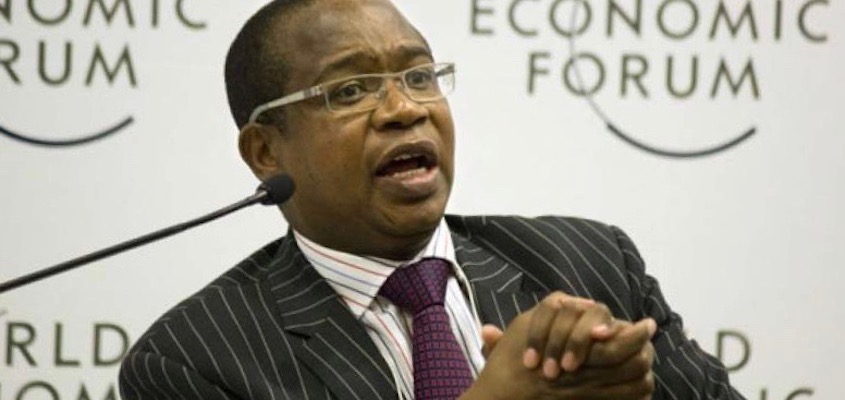loyola llothta
☭☭☭
nah this it that. just three authoritarian morons (President Emmerson Mnangagwa, Mthuli Ncube, and Vice President Constantino Chiwenga)Sounds likeas in whoever will get the mine strong-armed it from Zimbabwe and told the PM told make a statement that their selling 100% of it to any foreigners interested.
Who gives over 100% of their resources to auxiliary nations?

In Davos last week, Ncube defended the Chiwenga’s Internet disconnection as just “a temporary and tactical strategy to try to manage the situation… managing insurrection, and managing information and dissemination.” Speaking to CNN, he bizarrely blamed last week’s protests on a “pre-planned” conspiracy and not his petrol price hike: “these are the facts.” Anger at the petrol price was “added on.” And he defended army intervention: “What you saw in the streets is actually a sign that the government is open. Democratic spaces are open.”
Two leading opposition politicians were scathing. Welshman Ncube (no relation) called him a “political moron” for these remarks, and former MDC finance minister Tendai Biti (from 2009-13) labels Ncube a “fraud.” As if to prove it, in another interview Ncube said of his Davos trip, “Things are going well. The theme is Globalisation 4.0. It resonates with what Zimbabwe’s trying to do in terms of global financial re-engagement, raising capital, pushing our mantra that Zimbabwe’s open for business. It really resonates. Zimbabwe is the best buy in Africa.”
Under Ncube, much more explicitly neoliberal, anti-poor fiscal and monetary policies prevail, with no end in sight. The new regime has been unable to make structural changes to an impoverished economy dependent upon primary-resource exports in a time of still-low world commodity prices. Since last September, when Ncube was appointed, budget cutbacks and desperation currency manipulation have logically followed.
Ncube’s vain arrears ambitions: pay, won’t pay or can’t pay – and can’t get new loans
Zimbabwe’s notorious shortage of hard currency was the proximate cause of the fuel price hike, followed by rapid price increases in anything requiring transport, including the staple maize. In turn, this squeeze reflects the priorities of a new finance minister, the academic economist Ncube, who is considered the most neoliberal in modern Zimbabwe’s history. Exhibiting a sometimes startling self-confidence, and entirely comfortable within the circuits of world elites, Ncube is smooth and at first blush, persuasive.
But his three most spectacular prior mistakes were, first, founding and chairing the Harare Barbican Bank, which launched in mid-2003 but then “failed to meet obligations” to the country’s clearance system within seven months, leading to expulsion. Two months later it was declared insolvent, as its regulator at the Reserve Bank of Zimbabwe explained, due to “serious liquidity problems as a result of imprudent banking behaviour… [including] questionable cross-border foreign exchange activities which are yet to be cleared to the satisfaction of all parties.”
A second mistake was serving well into 2018 as a top official at corruption-riddled financier Quantum Global, which ripped off Angola’s citizenry during his tenure there.
Third, as chief economist at the (Western-dominated) African Development Bank (AfDB) in 2011 at the height of “Africa Rising” hype, he declared the existence of a new “African middle class” of more than 330 million people: “Hey you know what, the world please wake up, this is a phenomenon in Africa that we’ve not spent a lot of time thinking about.” Oddly, Ncube included in the “middle class” category people who barely survive on US$2-4/day, a group of more than 200 million.


 damn. cant help but feel like they still woulda came in for 80
damn. cant help but feel like they still woulda came in for 80 NOT ALL (just so I’m clear), but a lot of African people are a joke. They still want to be colonized, preferring to be babied under the boot of non-blacks than assume the responsibility of building up their nations. Too many Africans lack the spirit of ADOS. At some point, black ADOS are going to have to intervene and assist the Africans like Malema and others who are not just fighting off cacs, Asians, Arabs and Indians, but are in a struggle against the colonized mindset of their own black countrymen.
NOT ALL (just so I’m clear), but a lot of African people are a joke. They still want to be colonized, preferring to be babied under the boot of non-blacks than assume the responsibility of building up their nations. Too many Africans lack the spirit of ADOS. At some point, black ADOS are going to have to intervene and assist the Africans like Malema and others who are not just fighting off cacs, Asians, Arabs and Indians, but are in a struggle against the colonized mindset of their own black countrymen. 
